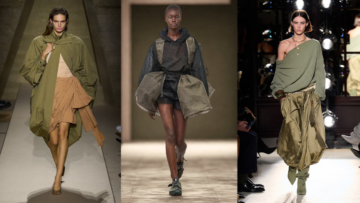
In a move toward circularity, Spanish fashion house Mango has signed a strategic deal with Swedish textiles company Circulose to add recycled cotton fibres to its product lines. The action represents an important step forward in Mango’s commitment to scaling sustainable materials globally across its supply base.
As part of the partnership, Mango will start using Circulose—the material created from chemically recycled cotton waste—to create future collections. The agreement, which Mango calls “a milestone in its commitment to sustainable fashion,” aims to meet its overall objective of producing only lower-impact fibres by 2030.
Andrés Fernández, Mango’s director of sustainability and sourcing said that this partnership represents an important step on their sustainability journey, adding that it signifies their determination to create a more responsible and circular fashion system—where innovation fuels environmental advancement.
Circulose CEO Jonatan Janmark described Mango’s joining its partner network as “a strong signal” to the sector. He said that their commitment brings them closer to the restart of their factory and reaffirms the need for circularity at scale.
Circulose, previously called Renewcell, recycles plant-based and cellulose-heavy textiles into a dissolving pulp that can be used as an alternative to virgin cotton and wood-based material. Having filed for bankruptcy in early 2024 after failing to gain enough brand traction, the company re-launched in June under new ownership headed by Swedish investment firm Altor and still enjoys support from key fashion players such as H&M Group, Bestseller, and PVH Corp.
For Mango, the alliance adds to an expanding pipeline of circular projects. The Barcelona-based firm has launched a denim capsule with a circular design approach, partnered with Spanish textile innovator Pyratex, and co-founded Re-Viste, a national platform centered on collecting textile waste in Spain.
With a presence in over 120 markets and over 2,800 stores globally, Mango generated €3.34 billion in revenue in fiscal 2024, up 7.6 per cent year on year. The brand’s move towards circularity is a sign of a larger commitment to redefining fashion’s sustainability at scale.






